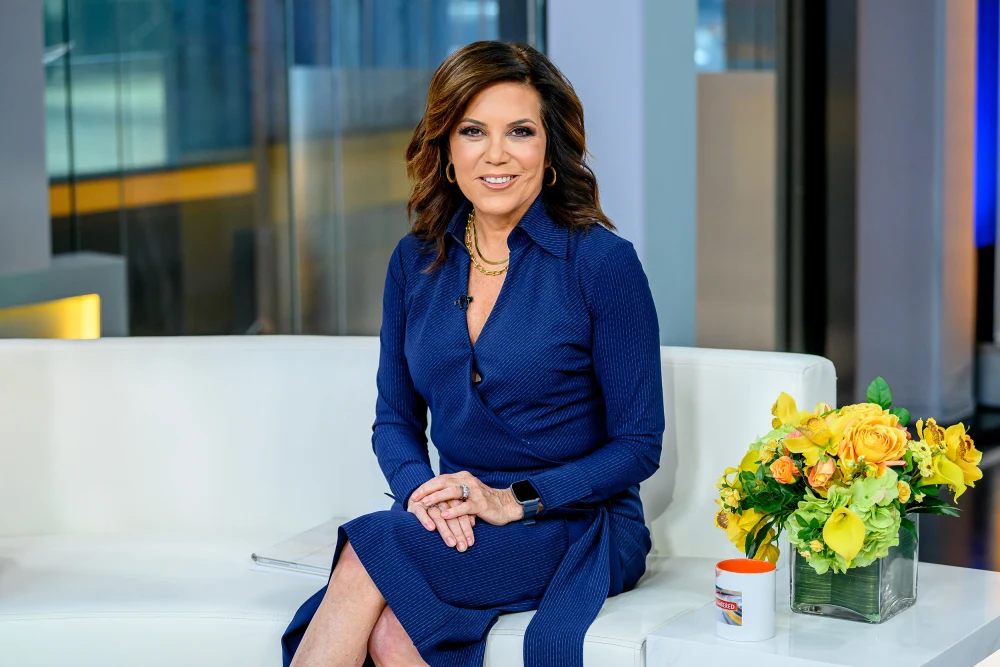For many Americans, the Republican dysfunction that has paralyzed activity in the House of Representatives, while two wars rage abroad and a budget crisis looms at home, is fueling long-term pessimism about the country’s basic institutions.
The lack of trust extends beyond Congress. Recent surveys conducted before and after the legislative crisis show distrust in everything from the courts to organized religion. Internal disputes within the Republican Party, which have left the post of speaker of the lower house – the second contender for the presidency – vacant for nearly three weeks, are seen as the latest sign of deeper problems with the country’s basic institutions. Used to be.
“They’re not paying attention to people’s interests, because they’re so useless,” said Christopher Lough, 57, of Fargo, North Dakota.
He said those interests also include approving funds for Ukraine to continue its fight against Russian aggression, something he said ultimately helps the United States, President Joe Biden said in the Oval Office on Thursday underlined during a speech in.
“Normally we are the knight in shining armor, but we can no longer be that,” said Lough, a Democrat.
Disdain for Congress is just one area where Americans say they are losing confidence. Various surveys claim that negative sentiments include loss of trust or interest in institutions such as organized religion, the police, the Supreme Court, and even the banking sector.
“Trust in institutions has declined substantially,” said Kay Schlozman, a political science professor at Boston College. Schlozman said he believes in government and the things it provides, such as national defense and access to health care, but “I also completely understand why the American people can be cynical about government. ”
The House turmoil and the federal prosecution of Democratic Senator Robert Menendez of New Jersey, who faces bribery charges, show that both major parties are contributing to this discouraging picture.
The House has been without a permanent leader since early October, when a small group of right-wing Republicans ousted a member of their own party, then-House Speaker Kevin McCarthy. Various subsequent attempts to change it have failed.
Schlozman said, “This is a perfect example of the kind of things that I would say cannot promote confidence in government among Americans: multiple voting, intra-party factionalism, personal ambition and an unwillingness to reach solutions.”
Nearly half of adults (53%) say they have “almost no confidence” in the people running Congress, according to an Associated Press-NORC Center for Public Affairs Research poll conducted in October. This figure matches 49% in March. Only 3% have a lot of confidence in Congress, practically the same as in March.
Nearly 4 in 10 adults (39%) have very little confidence in the executive branch of the federal government, compared to 44% in March. A majority of Republicans (56%) have very little confidence in the executive branch – which is in the hands of a member of the opposing party, Democrat Joe Biden – compared to only 20% of Democrats.
Nearly a third of adults (36%) say they have very little confidence in the conservative-majority Supreme Court, a figure that has held steady in recent months. The survey reinforces the fact that Democrats are more likely than Republicans to say they have low confidence in the Supreme Court. African Americans are more likely than Americans overall, and more likely than white adults and Hispanics, to say they have no confidence in the nation’s highest court.
One-third of American adults (33%) have very little trust in the Justice Department, and Republicans have less trust than Democrats. This comes as former President Donald Trump lashed out against the department after it was accused of mishandling classified documents and trying to overturn the results of the 2020 election.
Rick Cartelli, 63, a medical worker from Rocky Hill, Connecticut, who identifies as independent, says he’s happy with his local and state government, but the current climate, especially the chaos at the Capitol, has diminished my confidence. Is done. That institution.
“What is happening now is not good for the country,” he said.
Cartelli also said he has little confidence in the executive branch, citing what he describes as Biden’s “mental lapses” that are “probably only going to become more apparent.”
Several AP-NORC surveys this year show that the lack of trust is widespread, extending to organized religion, government intelligence and diplomacy agencies, as well as financial institutions. In a study by AP-NORC and Robert F. Kennedy Human Rights, less than half (45%) of respondents said they had little or no trust in the media to report completely, accurately, and impartially.
Opinions about the military were better, with only 17% saying they had no confidence in the institution.
Kathleen Kersey, a 32-year-old health care worker from Brunswick, Georgia, who is a Republican, says she has little trust in any federal institution, including Congress, but she has more trust in the institutions closest to her. She is also an admirer of Republican Governor Brian Kemp, whom she said is a moral person.
He said, “One person can’t do much, and with all the evil, it’s hard to trust anything, even the churches, because everything works as a unit ”
Trust in the country’s founding institutions has waxed and waned throughout history, although there has been a declining trend since at least the 1970s. Trust in government declined around the time of Watergate and the Pentagon Papers. Before recovering slightly during Ronald Reagan’s presidency in the 1980s, despite Reagan’s famous declaration that the nine scariest words in the English language were: “I’m from the government and I’m here to help.”
David Bateman, associate professor of political science at Cornell University, said the conservative Tea Party movement under former President Barack Obama began a steady decline in trust, as seen in Gallup polls. But Bateman believes the most serious problem in recent years has been Trump’s lies about the 2020 election, with dozens of courts rejecting his claims and multiple audits in states where he ran. And he has been defeated in the reviews.
“The biggest threat to trust in institutions was the Trump campaign’s refusal to accept the election results and its insistence that they won,” Bateman said, adding that a large section of Republicans in Congress made claims in the certification process. Supported, Bateman said.
“It reinforces the idea that the entire institutional system is rigged, and it’s not,” he said.
An example of the consequences is the Republican attack on the Justice Department, including the FBI. The “instrumentalization” of the FBI has been a rallying cry for Republicans, who believe the agency is targeting conservatives and who are angered by Trump’s various investigations.
Candidates running against Trump for the Republican presidential nomination have said they will fire FBI Director Chris Wray.
Democrats have long been distrustful of the FBI, especially among those with knowledge of the civil rights-era surveillance.
Bateman said, “If you had told me in 2000 that Republicans were saying the FBI could not be trusted, I would have been surprised.” “Moving against the FBI is really going to increase distrust.”




